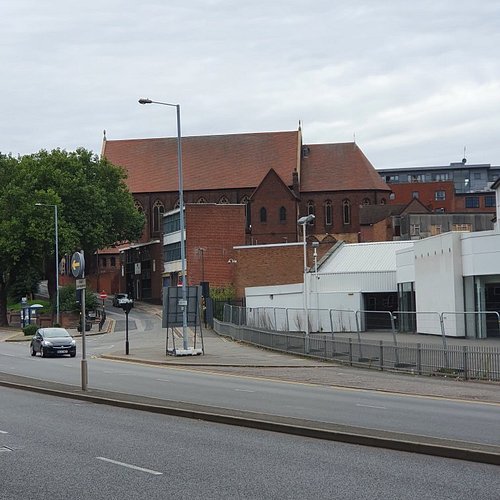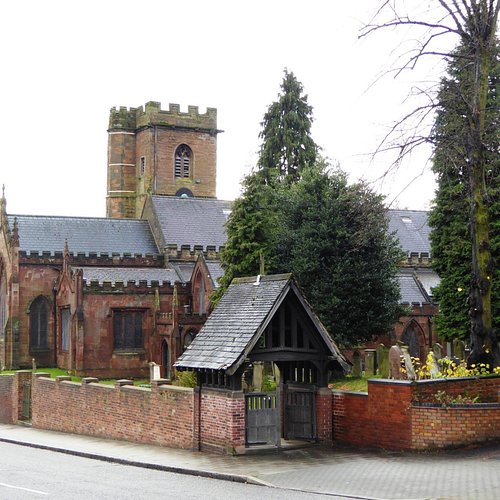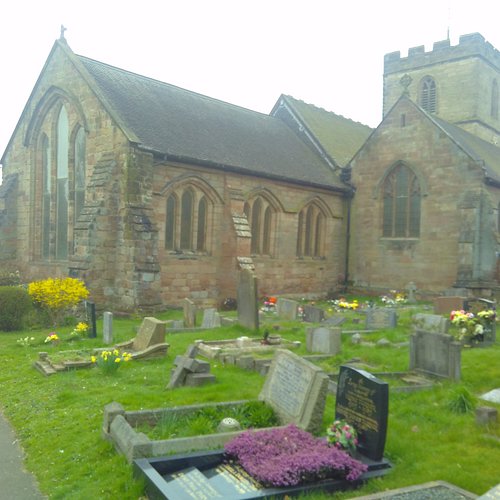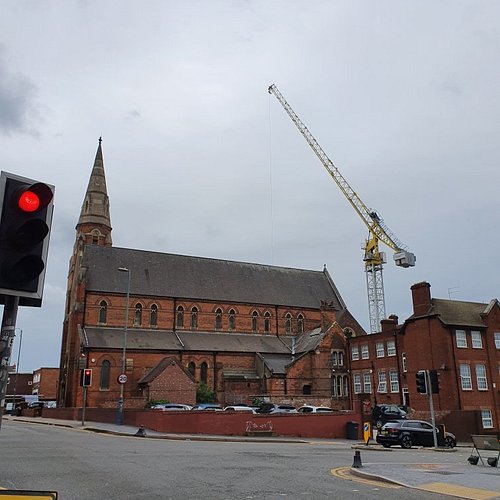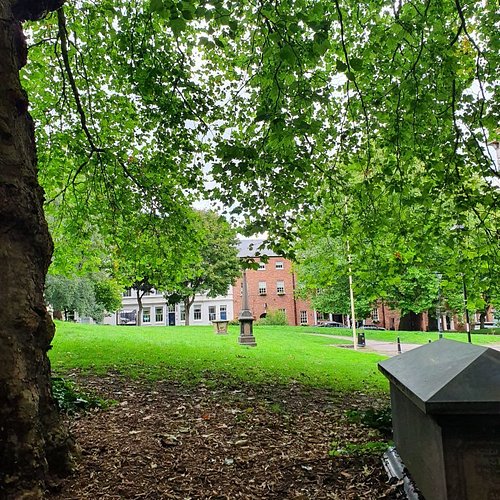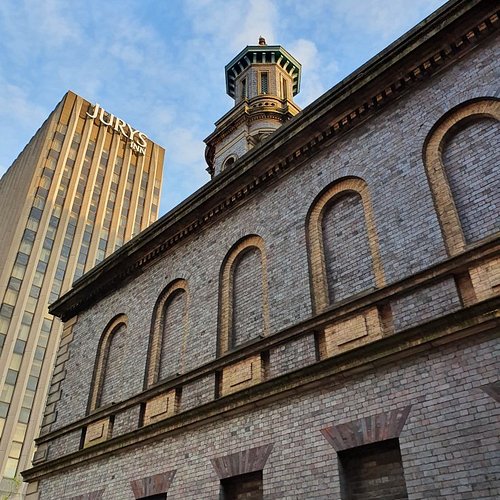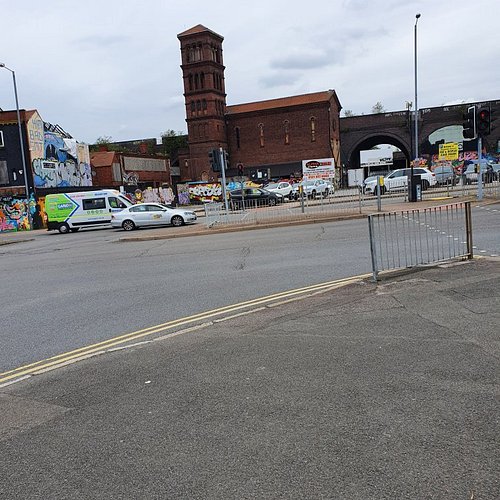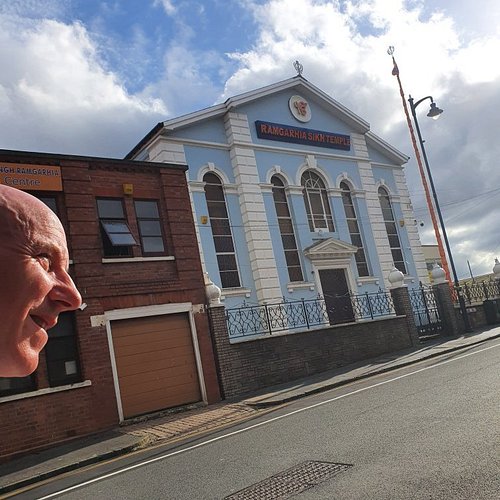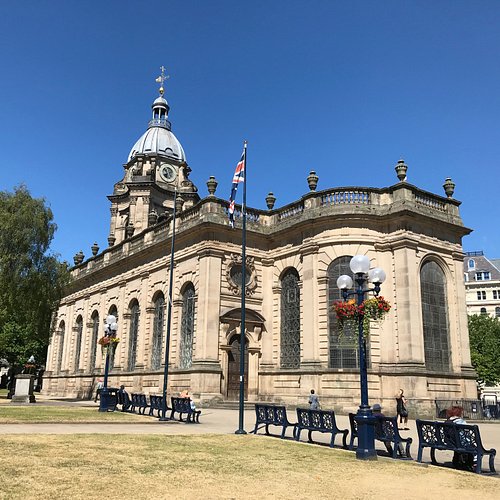The 10 Best Churches & Cathedrals in Birmingham, England
The geographical heart of England, Birmingham started life as a sixth- century Anglo-Saxon village. Today, much of this city of over a million dates back to post-WWII redevelopment in the 1950s and 60s. Cutting edge museums and galleries, innovative theaters and excellent shopping have contributed to Birmingham's appeal as a weekend break destination. Don't miss the hopping bars and cafes of Gas Street Basin or the fascinating creatures at the National Sea Life Centre.
Restaurants in Birmingham
1. Orthodox Cathedral of the Dormition
2. St Mary's Parish Church "The Cathedral Of The Industrial Revolution"
Overall Ratings
5.0 based on 5 reviews
The Parish Church at Handsworth, dedicated to St Mary, has continuing on the same site for a millennia or more. The first stone Church was built around 1160 and the bottom stages of the tower date from this building. The simple and austere Church served for some considerable time before it was enlarged in the 14th century. Because of the instability of the ground, this expansion was northward instead of being lengthened and broadened. In the 15th century the tower was raised and the Wyrly Chapel was added to the north of the Chancel. In 1820 a reconstruction destroyed the medieval character of the church. The architect for this rebuilding was William Hollins who rebuilt the north arcade and aisle and enlarged the church by adding a broad north transept, filled with pews and galleries. The interior of the church was rearranged to suit contemporary taste. Canon Tompkins summed up this stage of development: Hollins work had no distinction: it was utilitarian Gothic of an age uncertain of the principles of ecclesiastical style. The restoration of 1876 was an almost total reconstruction of the Church inspired because the fabric was in a bad state with the threat the roof collapsing and an unbearable stench from the burial vaults (which were concreted over) and because there was a desire to remodel the building in keeping with the modern tastes associated with the Oxford movement. JA Chatwin was engaged as the architect for this project. Shortage of money meant the elimination of Chatwin's proposal for clerestory windows, so that the church is dark and ill-lit. It meant also that inside finials are carved only on the sides visible to the congregation, and outside finials are not carved at all. The interior was rearranged in conformity with modern taste. The Jacobean pulpit and reading desk, with its heavy hexagonal sounding-board, fixed to the massive wall of the tower, and the old, high-backed pews, curiously arranged to face it, were disposed of, and the galleries were replaced by pews. Some of the lower 18th century oak pews were put in the south aisle and contrast with the new seating of pitch pine. The sanctuary was adorned with an altar, a reredos and two sedilia and guarded by brass rails. The chancel was furnished with stalls and later entered through a screen of iron and copper. The organ was moved from the west end to be near the choir. A marble pulpit and brass lectern flanked the chancel steps. Over the next few years painted glass was inserted in most of the windows. The neo-gothic font of 1820 was removed and the old medieval font was brought back and placed on a platform at the west end of the south aisle. Since then there have been few structural alterations. The pinnacles have been removed from the tower, restoring its essential character of strength and solidity. The font has been removed from the end of the south aisle and placed in a baptistry at the west end of the nave. A screen of oak and glass divides the vestries from the rest of the church. The Chancel is an unchanged Chatwin Chancel (we recently removed the carpet to expose the original tiles). It contains the memorials to Boulton (Flaxman), Murdoch (Chantrey) and Watt (Chantrey), all of whose remains lie within St Mary's - significant innovators of the Industrial Revolution, as well as to other figures from the 19th century. The Chatwin reredos dates from 1883. The 15th century Wyrly Chapel adjoins the Chancel.
3. St Laurence Church
Overall Ratings
5.0 based on 2 reviews
Medieval church in the historic heart of the original village of Northfield. Boasts 12th century Norman doorway; medieval chancel (noted in Pevsner); and 14th century porch. Graveyard contains Commonwealth War Graves
Reviewed By LaserJet88 - Birmingham, United Kingdom
Whether you're looking for a place to visit in Northfield or visiting, make sure you get to see this sublime place, even more so if you're not a Church visitor. Was built a very long time ago, mentioned in the Doomsday book in 1066, still here today says it all! The external building as you walk up Stone Road lights up in beauty, and internally - is even more sublime. Spend a moment here, and you'll want to spend longer and come back again..... that's what I felt, and we have been in and out every Sunday for the past 7 years! :) Free of charge, they even have visitor mornings on Saturdays with friendly and welcoming volunteers that insist on giving you a cuppa and biscuits, whilst they feed you the history of the Church that holds its history in Northfield and Birmingham, having previously been central to the town of Northfield. Enjoy!
4. St Anne's Catholic Church
5. St Paul's Square
6. Broad Street Presbyterian Church
7. Father Lopes' Chapel
8. St Michael's Catholic Church
9. Ramgarhia Sikh Temple
10. Birmingham Cathedral
Overall Ratings
4.5 based on 397 reviews
The UK's third smallest Cathedral, but truly stunning and the only green space within the city. Designed in a fine English Baroque style, this elegant Cathedral is decorated with four stained glass windows by Pre-Raphaelite artist, Edward Burne-Jones. Daily services and prayer, Cathedral shop open most days. All are welcome.

